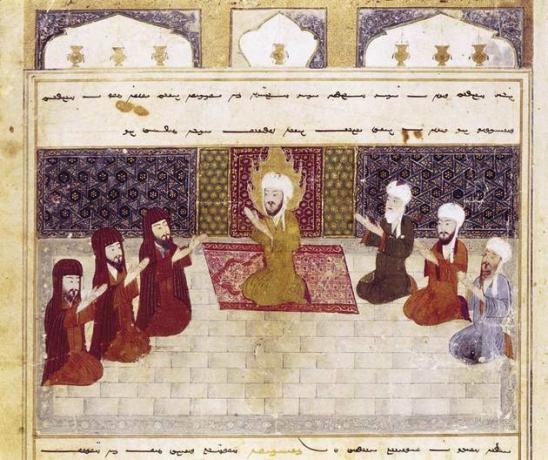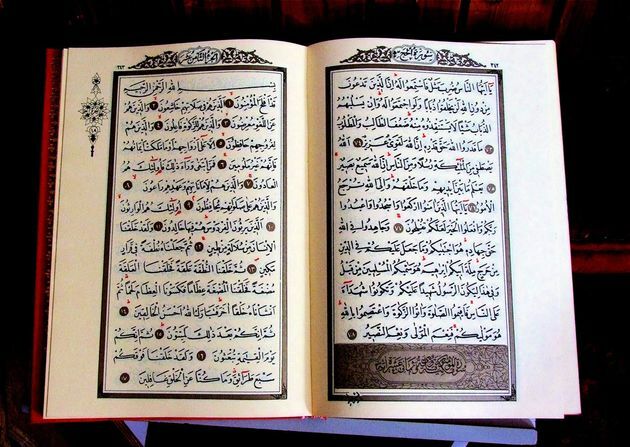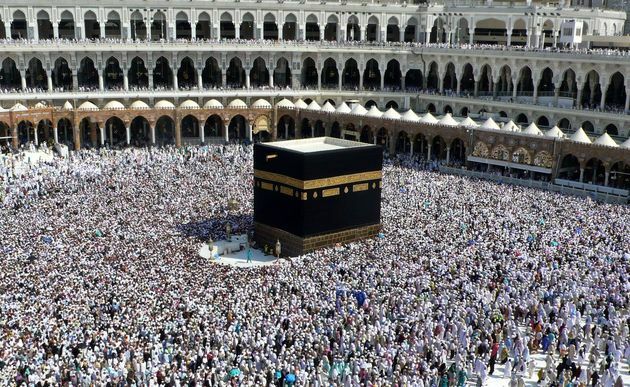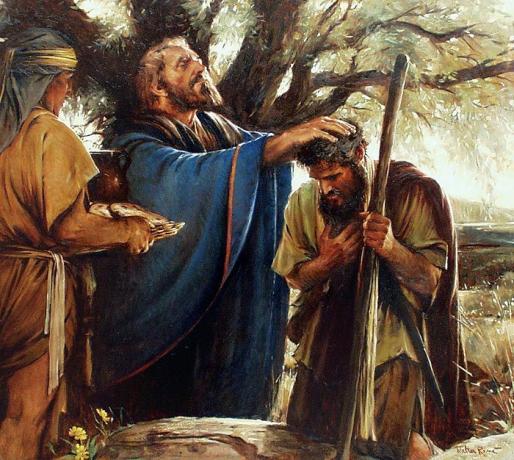Mohammed (570-632) was a religious leader, politician and the founder of the Islamic religion. Followers of him are known as "Mohammedans" or "Muslims".
Their role was fundamental to uniting Arab society through religion, as they lived in distinct tribes and clans.
Biography
Born in Mecca on April 6, 570, Mohammed (Muhammad, in Arabic) he was orphaned very early, being raised by his uncle Abu Talibe. With him, he will work as a merchant accompanying the caravans that made the routes through the Arabian desert.
He tries to marry his cousin, but is rejected because of his orphan status. At this time, he was in charge of the affairs of Khadija, a wealthy widow in the city.
On his return from a trip where he had been successful, she proposes marriage to him and Muhammad accepts. They would remain married for twenty-five years and would have four daughters and two sons, who did not reach adulthood.

When he was forty years old, he is distressed by the social inequalities and problems of his time. He takes refuge in prayer and meditation.
Islamic tradition holds that at one of these times, he was visited by the Angel Gabriel, who sent him messages from God, and designated him as the last prophet sent. These revelations would be gathered in a book considered sacred to Muslims: the Koran.
Thus, Muhammad begins to disseminate the revelations and warn of the existence of a single and true God, in a polytheistic society, that is, one that worshiped several gods.
Another turning point during his life was the night journey, in 621, when Muhammad was reportedly transported to the city of Jerusalem. There he would meet several Old Testament prophets and Jesus. He would also ascend to heaven where he would be with God Himself.
This fact is accepted as real for Orthodox Muslims and as a spiritual journey to other sides. In any case, the prophet would no longer doubt his mission and would continue to submit the peoples of the Arabian Peninsula to his teachings.
Although his main goal was to preach the word of God, Muhammad pointed out injustices such as slavery and the extortionate interest that was charged in Mecca for doing business. Because of this, Muhammad starts making powerful enemies in Mecca who plan to kill him.
From Mecca to Medina
Hostilities in Mecca grew to such an extent that he fled to Medina in the year 622. This event is called hegira and marks the beginning of the Muslim calendar.
From there, Muhammad will wage a series of wars against neighboring tribes and clans, with the aim of accepting Al-lah, "The God", in Arabic. Likewise, he undertakes killings against Jews and Christians who have not renounced their faith. This will be a source of controversy to this day.
Mohammed returns to Mecca in 629 to reconquer it and does so without spilling a single drop of blood. He enters the temple and destroys the images that were there, except those of Jesus and Mary, and makes Mecca the most important city in Islam.
weddings
After Khadija's death in 619, Muhammad would marry a large number of women in order to consolidate political alliances. One of the most controversial marriages currently was with his third wife, Aisha, who was only 6 years old and Muhammad 52.
In total, Muhammad had 13 wives, but would only have children with Khadija and Maria the Coptic, an Egyptian slave who would give him a son, who died at the age of five.
Only his daughter Fatima reached adulthood and married Ali ibn Abi Talib. Without making a successor clear, Muhammad's political and spiritual heritage ended up dividing the faithful among Sunnis and Shiites.
Muhammad died on June 8, 632, in the city of Medina.
Quran

O Quran or Koran is the holy book of the Islamic religion and means "The Recitation". It is divided into 114 chapters (called “suras”) and 6326 verses.
It is important to explain that the word “Al”, in Arabic, is equivalent to the definite article in Portuguese. Thus, the correct name of the book is “The Koran·”.
The book brings together the stories of the creation of the world and the precepts of religion revealed by God to his prophet Mohammed. It also gives instructions on marriage, the social and legal organization of society, not limited to matters of faith.
Another religious source for Muslims is the suna which brings together the sayings and deeds of the prophet Mohammed.
The prophet received these words for twenty-three years and his disciples undertook to write them after his disappearance.
Just as Catholics have long read the Bible in Latin, the Koran is still recited in Arabic in mosques around the world.
mecca

The city of Mecca, in Saudi Arabia, is the most important for the Islamic religion. When Muhammad was born, it was a busy place that housed a temple with 360 gods, one for each day of the year, according to the calendar used there.
In the center is a large black stone, a meteorite called Kaaba (Cube). It is believed to have been there since the times of the first biblical man, Adam. But there is no archaeological evidence to prove it.
Its importance is such that Muhammad ordered Muslims to perform their daily prayers facing the direction of the city of Mecca. In all mosques there is a special place that points to the exact place called "Qibla".
Pilgrimage to the city at least once in a lifetime is one of the obligations that every Muslim believer must do. The event that brings together millions of believers and is called hajj or Hadj.
Jesus and Mohammed
The Muslim religion considers Jesus to be a great prophet, as he was miraculously born of a virgin. However, he does not accept that he died on a cross, nor that he would have been a god. Both Jesus and the Virgin Mary are mentioned several times in the Koran.
Jesus and Mohammed preached a doctrine of peace, brotherhood and equality among men and believed in the existence of a single God (monotheistic religion).
It is important to make clear that Muhammad is only a prophet of God. In his life nothing extraordinary happened: he didn't cure the sick, he didn't perform miracles, he didn't walk on water.
There are no places where they mark his birth and his images are not allowed anywhere. After all, for Islam, who should be worshiped is God and not the prophet. The only noteworthy achievement was that he was chosen by God for his revelations.
Sentences
- “Know that earthly life is nothing but an amusement and a game, and adornments and futile boasting, and rivalry between you in search of more riches and children resembles the vegetation that follows a rain.”
- “Whoever seeks knowledge and finds it, will get two prizes: one for looking for it, and another for finding it. If you don't find it, you'll still have the first prize.”
- “God created the woman from a rib, from a crooked bone. If you try to straighten it out, it will break. So be patient with women.”
- “He bears evil with patience and forgives, for there is in him great and true wisdom.”
- “A man's true wealth is the good he does in this world.”
- “Wealth does not consist in the abundance of earthly goods, but in the contented spirit.”
read more:
- Bedouin
- arab culture
- Characteristics of Muslim Culture
- Religious intolerance

